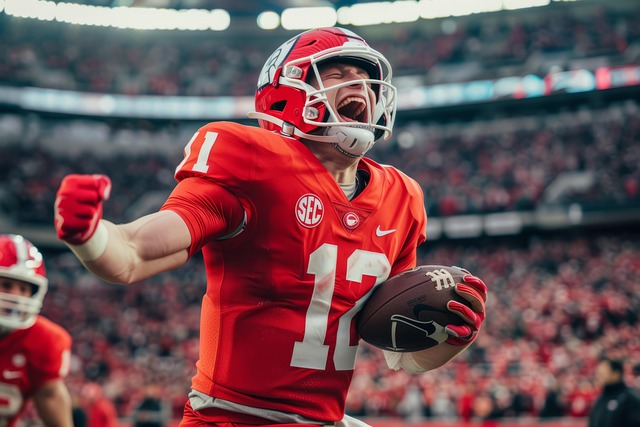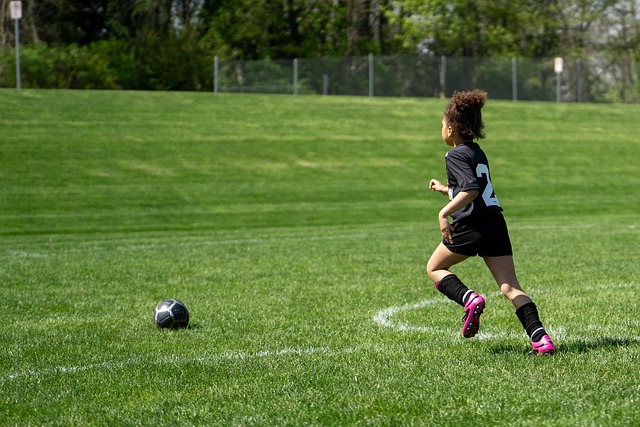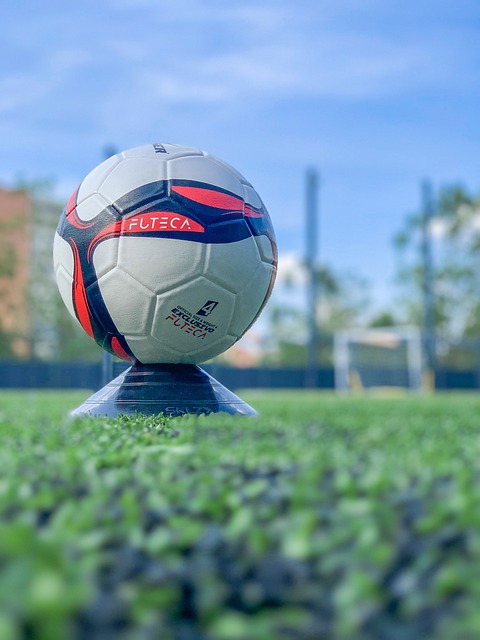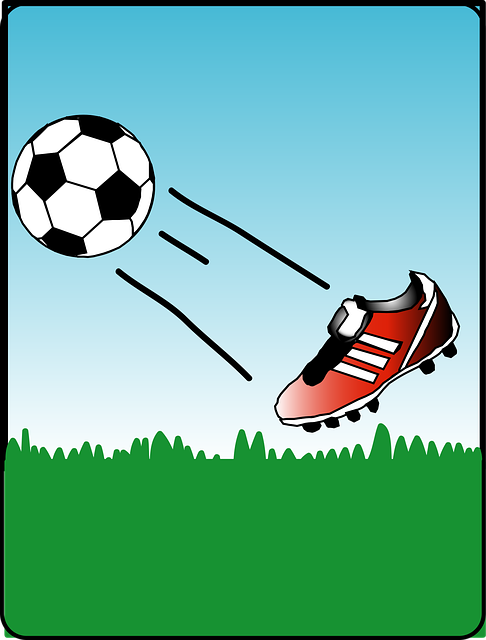The Ducks soccer program stands out among college soccer teams through its holistic approach that combines athletic excellence with personal development. Key drivers include individualized training, strong team dynamics, innovative tactics and technology, data-driven decisions, and mental preparation. This comprehensive strategy ensures not only superior on-field performance but also positive influence on the university community, preparing players for both academic and athletic success in college soccer.
The Oregon Ducks soccer program stands out as a model for excellence in college soccer, known for its holistic coaching strategies that blend tactical prowess with player development. This article explores the multifaceted approach of the Ducks’ coaching staff, delving into key areas such as player mentorship, team dynamics, innovative tactics, data-driven decision making, and mental toughness training. Discover how these strategies not only enhance performance but also prepare college soccer teams for championship-level success.
- Understanding the Ducks Soccer Program: A Overview of its Philosophy and Goals
- Player Development: Techniques for Mentoring Young Athletes
- Building Team Dynamics: Strategies to Foster Cohesion and Communication on the Field
- Tactical Approaches: Innovative Ideas for Coaching College Soccer Teams
- Data-Driven Decisions: Utilizing Analytics for Performance Enhancement
- Mental Preparedness: Equipping Players with Resilience and Focus for Competitive Success
Understanding the Ducks Soccer Program: A Overview of its Philosophy and Goals
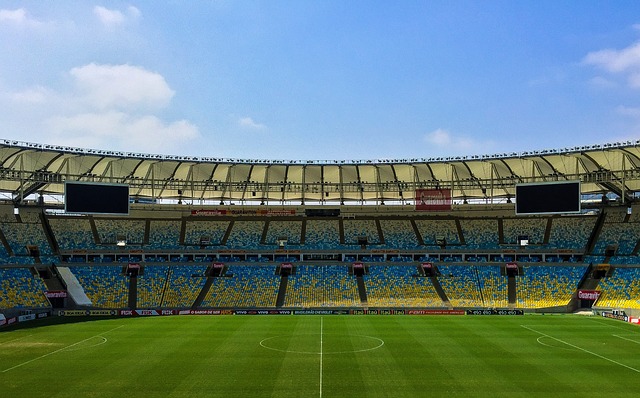
The Ducks soccer program is renowned for its holistic approach, focusing on developing not just skilled athletes but well-rounded individuals. This philosophy extends beyond the pitch, aiming to cultivate leaders and responsible citizens through sports. The program’s primary goals revolve around fostering a competitive spirit, encouraging teamwork, and promoting physical and mental well-being among its players. By integrating life skills training and community engagement initiatives, the Ducks strive to prepare their athletes for both academic and athletic success.
This unique blend of sporting excellence and personal development sets the Ducks soccer program apart from many other college soccer teams. The coaching strategies are designed to nurture talent while instilling values that will serve players throughout their lives. This comprehensive approach ensures that the Ducks not only excel on the field but also leave a positive impact on the university community and beyond.
Player Development: Techniques for Mentoring Young Athletes
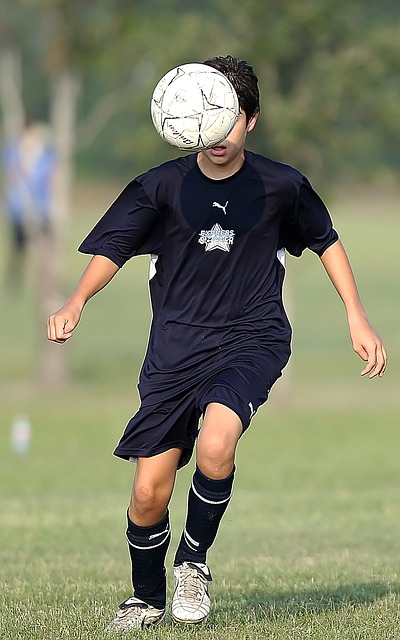
Player development is a cornerstone of successful college soccer teams, and the Ducks program excels in mentoring young athletes through various techniques. Coaches play a pivotal role in shaping players’ technical skills, tactical understanding, and mental fortitude. One effective approach is individualization, tailoring training sessions to meet each player’s unique needs and skill sets. This ensures that every athlete receives targeted guidance, fostering personalized growth.
Additionally, the Ducks emphasize the importance of feedback and open communication. Regular, constructive feedback helps players understand their strengths and areas for improvement, encouraging self-reflection and motivation. By creating an environment where athletes feel comfortable discussing their goals and challenges, coaches can guide them towards becoming well-rounded soccer professionals, ready to contribute significantly to the team’s success.
Building Team Dynamics: Strategies to Foster Cohesion and Communication on the Field

Building Team dynamics is a cornerstone of the Ducks soccer program, as it understands that strong cohesion and communication are vital to achieving success on the field. To foster this, coaches employ strategic initiatives during training sessions that encourage players from different backgrounds and positions to interact and support each other actively. One effective approach is team-building exercises off the pitch, which aim to break down barriers and strengthen bonds among teammates. These activities often involve collaborative problem-solving tasks or group challenges designed to promote trust, empathy, and effective communication skills.
On the field, coaching strategies focus on open lines of communication during practices and games. Coaches create opportunities for players to communicate their intentions, provide feedback, and make quick decisions as a unit. This includes implementing clear signaling systems for tactical adjustments, encouraging verbal interactions to coordinate plays, and rewarding instances of effective communication that lead to successful team moves. By fostering an environment where open dialogue is valued and encouraged, the Ducks soccer program ensures that its college soccer teams remain cohesive, responsive, and ultimately, more formidable opponents.
Tactical Approaches: Innovative Ideas for Coaching College Soccer Teams
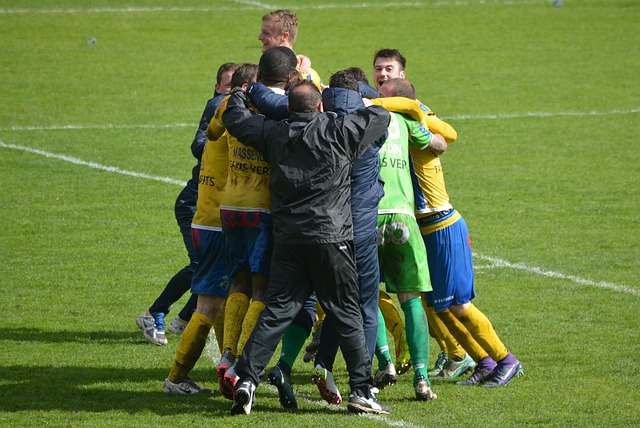
In the competitive landscape of college soccer, coaches are constantly seeking innovative tactics to gain an edge over their opponents. The Ducks soccer program has been at the forefront of this evolution, employing creative strategies that not only challenge players but also adapt to the ever-changing dynamics of the game. One such approach involves a flexible, possession-based style of play, emphasizing quick passing and movement to create openings and maintain control. This tactic, often referred to as “possession soccer,” requires exceptional technical skills from players and encourages continuous, strategic communication on the field.
Additionally, modern technology has played a pivotal role in enhancing coaching strategies. Video analysis tools allow coaches to meticulously break down games, identifying areas for improvement and individual player strengths. By leveraging data-driven insights, coaches can tailor training sessions to specific needs, refining team tactics and individual skills. This innovative use of technology ensures that college soccer teams are not just physically prepared but also mentally equipped with a profound understanding of the game’s nuances, ultimately elevating their performance on the pitch.
Data-Driven Decisions: Utilizing Analytics for Performance Enhancement

In the competitive landscape of college soccer, data-driven decisions have become an indispensable tool for coaching success. The Ducks soccer program embraces this approach by utilizing advanced analytics to gain insights into player performance and team dynamics. By collecting and analyzing vast amounts of data—from individual athlete metrics like speed and agility to team strategies and tactical patterns—coaches can make informed choices that enhance performance on the field.
This data-driven philosophy enables the Ducks to identify areas for improvement, optimize training regimens, and tailor gameplay strategies to each opponent. With analytics at their disposal, coaches can quickly adapt to changing circumstances during matches, ensuring the team remains competitive throughout. As college soccer teams continue to embrace technological advancements, this methodical approach promises to elevate performance standards and foster a culture of continuous improvement within the Ducks program.
Mental Preparedness: Equipping Players with Resilience and Focus for Competitive Success

Mental preparation is a cornerstone of the Ducks soccer program, aiming to equip players with resilience and focus crucial for competitive success in college soccer teams. Through mindfulness exercises, visualisation techniques, and positive self-talk, coaches foster an environment that builds mental toughness. This enables players to handle pressure, bounce back from setbacks, and maintain concentration throughout intense matches.
The program emphasizes the importance of emotional control and mental agility. Players are taught to manage stress, stay focused under pressure, and quickly recover from mistakes or adverse outcomes. By cultivating a resilient mindset, Ducks soccer players gain an edge that translates directly into on-field performance, contributing to their overall success in highly competitive college soccer matches.


